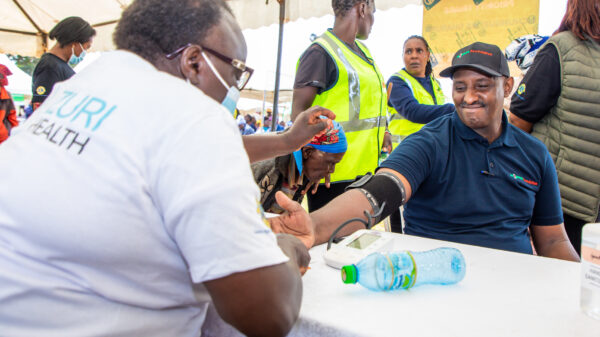NAIROBI, Kenya, Feb 10 – A new study conducted in Kilifi by KEMRI Wellcome Trust has revealed that patients on multiple anti-seizure medications, a treatment approach known as polytherapy, are at a higher risk of developing mental health problems.
The research, which was conducted at the Kilifi Epilepsy and Neurodevelopmental Clinic, analyzed data from 3,016 epilepsy patients who attended the clinic between March 2019 and May 2024.
Epilepsy is a chronic noncommunicable disease of the brain that is characterized by recurrent seizures, which are brief episodes of involuntary movement that may involve a part of the body (partial) or the entire body (generalized) and are sometimes accompanied by loss of consciousness and control of bowel or bladder function.
According to the World Health Organization, this condition affects more than 50 million people worldwide, 80 percent of whom are from low- and middle-income countries.
According to the study, one-third of the patients assessed were on polytherapy due to frequent seizures and focal seizures, factors that generally downturn the effectiveness of anti-seizure medications, necessitating the addition of multiple drugs.
Dr. Mercy Atieno, the lead researcher of the study, explained that children on polytherapy were more likely to exhibit behavioral problems. At the same time, depression and psychosis were more prevalent in adults with a longer history of the condition compared to those on monotherapy.
The study involved the use of standardized and structured questionnaires and a Child Behavior Checklist (CBCL) administered by clinicians.
The study scrutinized five domains, including hypomania, thought insertion, paranoia, strange experiences, and hallucinations, and an affirmative reply in any was considered a positive diagnosis.
“Often clinicians add on medications for individuals who continue to have seizures on the first or second drug, consecutively,” she stated.
“Our findings show that epilepsy management with polytherapy may be associated with psychiatric comorbidities,” she added.
Otieno further explained that some individual medications for the condition, especially older ones such as phenytoin, have been linked to psychiatric conditions; thus, combining such medications is likely to accelerate the risk of psychiatric comorbidities.
“The mechanisms for most are not fully understood, and warrant further investigation,” she stated.
The findings in Kilifi have underscored challenges of epilepsy management in low-income settings, where access to newer and potentially safer medications like levetiracetam and lamotrigine remains limited.
The risk of premature death in people with epilepsy is up to three times higher than for the general population, according to WHO.
Three-quarters of people with epilepsy living in low-income countries do not get the treatment they need, and In many parts of the world, people with epilepsy and their families often suffer from stigma and discrimination.
Otieno stressed the need for capacity building among healthcare workers on the appropriate medicine combination and investment in newer, safer, and more accessible medications that may be helpful to manage the condition in addition to assessing mental health problems in people with epilepsy on polytherapy.
“Initiation of polytherapy should be carefully considered and treatment of mental health problems in individuals with epilepsy should be carefully done since the medications can affect the effectiveness of each other,” she stated.








































